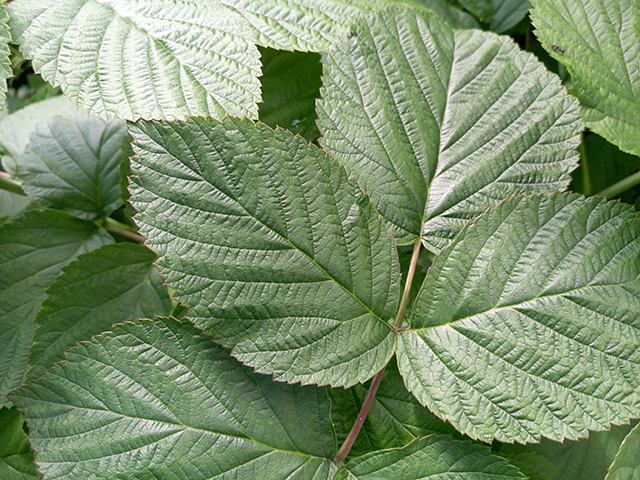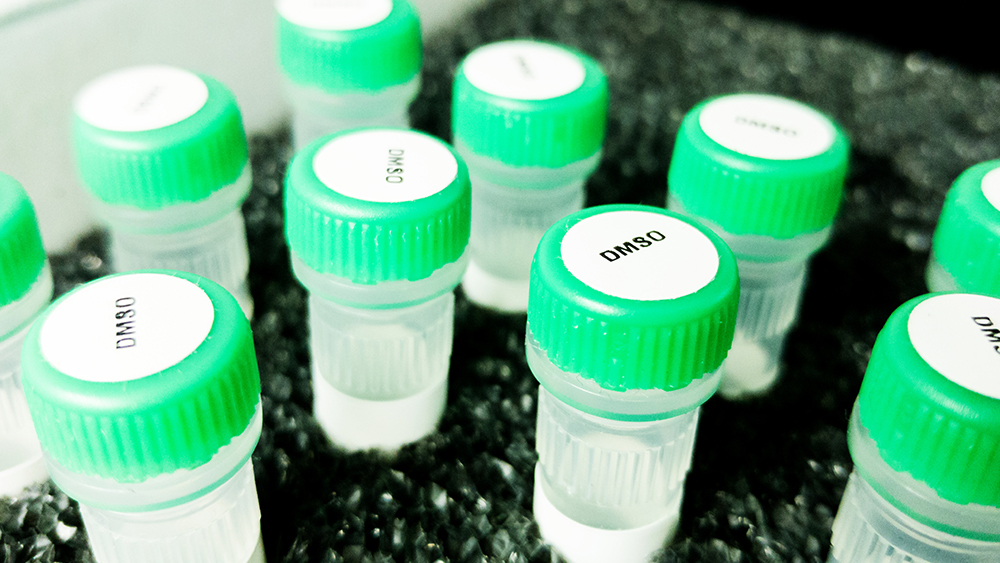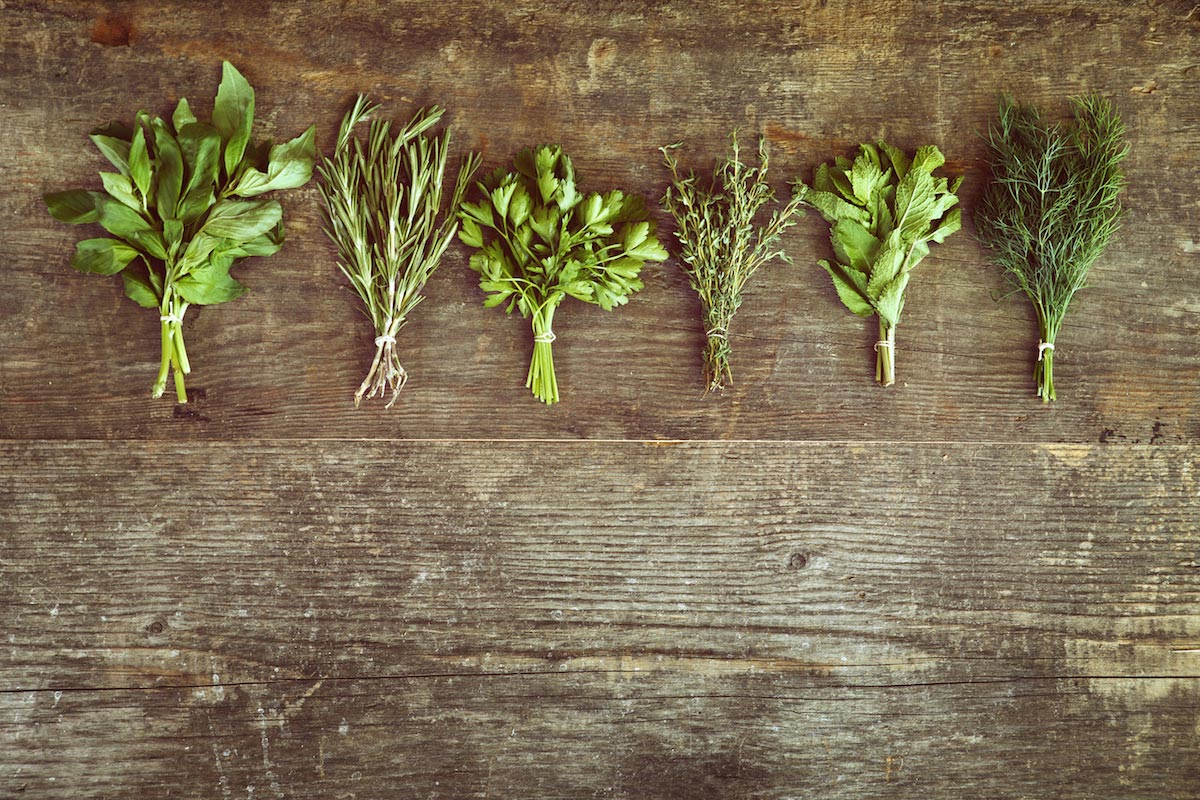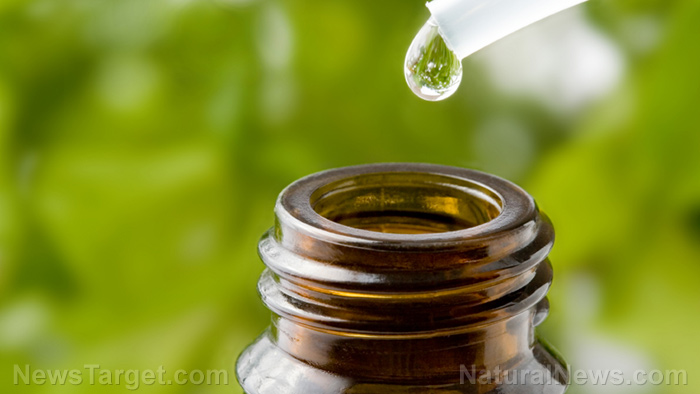Red Raspberry Leaves: A natural remedy for wellness and vitality
05/02/2025 / By Ava Grace

- Red raspberry leaves were highly revered in ancient Greece and Rome for their medicinal properties, particularly for digestive and anti-inflammatory benefits. Their medicinal use was documented by the Greek physician Dioscorides in the first century AD.
- The leaves are rich in phytonutrients, including tannins, flavonoids and ellagic acid, and essential vitamins and minerals like vitamin C, magnesium and calcium, which support overall health and immune function.
- Known as the “woman’s herb,” the leaves are widely used for supporting reproductive health, easing labor and alleviating menstrual cramps. They can also support digestion, boost immunity, reduce inflammation and promote cardiovascular health.
- Beyond tea, red raspberry leaf can be added to smoothies, soups and herbal infusions, offering a nutrient-rich boost to everyday recipes.
- Red raspberry leaf has regained popularity, especially among expectant mothers and wellness enthusiasts, for its natural healing properties. However, consulting a healthcare professional before use is recommended, particularly during pregnancy or when addressing specific health conditions.
For centuries, red raspberry leaves have been revered as a potent herbal remedy, offering a wealth of health benefits to those who seek natural solutions for wellness. This unassuming plant, native to Europe and parts of Asia, has transcended its origins to become a global superfood, celebrated for its nutrient-rich leaves and versatile applications.
Brief history of red raspberry leaves
Red raspberry leaves come from the Rubus idaeus plant, a member of the rose family. While the plant is native to Europe and temperate regions of Asia, it is now cultivated worldwide, including in North America, where it thrives in well-drained, fertile soils. The leaves are typically harvested during the flowering season, when their nutrient content is at its peak, and then dried for use in teas, tinctures and supplements.
The use of red raspberry leaves can be traced back to ancient Greece and Rome, where they were prized for their medicinal properties. The Greek physician Dioscorides, often regarded as the father of pharmacology, documented their use in his seminal work De Materia Medica in the first century AD. He commended the leaves for their astringent and anti-inflammatory properties, and their ability to treat digestive ailments and sooth sore throats. (Related: Prepper essentials: Why bucket food is a game-changer for emergency preparedness.)
Phytonutrients and health benefits
Red raspberry leaves are a treasure trove of phytonutrients, compounds that play a crucial role in promoting health and preventing disease. Among their most notable constituents are:
- Tannins: Known for their astringent properties, tannins can help reduce inflammation and support digestive health.
- Flavonoids: These antioxidants combat oxidative stress, protecting cells from damage caused by free radicals.
- Ellagic acid: A polyphenol with anticancer and anti-inflammatory properties.
- Vitamins and minerals: Rich in vitamins C, E and B-complex, as well as magnesium, calcium, iron and potassium, red raspberry leaves can support overall vitality and immune function.
These phytonutrients work synergistically to enhance the herb’s therapeutic potential, making red raspberry leaves a valuable addition to any wellness regimen.
Red raspberry leaf has been traditionally used to address a wide range of health concerns, earning them a reputation as a versatile healing herb. Some of their most well-documented benefits include:
- Women’s health: Red raspberry leaves are often referred to as the “woman’s herb.” They are widely used to support reproductive health, particularly during pregnancy. Studies suggest that they may help tone the uterine muscles, potentially easing labor and reducing the risk of complications. They are also used to alleviate menstrual cramps and regulate irregular cycles.
- Digestive support: The tannins in red raspberry leaves have a soothing effect on the digestive tract, making them an effective remedy for diarrhea, nausea and indigestion.
- Immunity: Their high vitamin C content and antioxidant properties make red raspberry leaves a natural ally for strengthening the immune system and warding off infections.
- Anti-inflammatory effects: Red raspberry leaves have been used to reduce inflammation and treat inflammatory conditions such as arthritis, sore throat and skin irritations.
- Cardiovascular health: The magnesium and potassium in red raspberry leaves can support heart health by regulating blood pressure and improving circulation.
Red raspberry leaves are typically bright green, with a serrated edge and a slightly fuzzy texture. When brewed as a tea, they impart a mild, earthy flavor with a hint of sweetness, making the tea a pleasant and soothing beverage.
In recent years, red raspberry leaves have experienced a resurgence in popularity, particularly among expectant mothers and wellness advocates. One anecdote shared by a midwife highlights its efficacy: A pregnant woman who drank red raspberry leaf tea daily reported shorter labor and a smoother delivery compared to her previous pregnancies. While such stories are anecdotal, they underscore the herb’s enduring reputation as a natural aid for childbirth.
Culinary uses
While red raspberry leaves are most commonly consumed as a tea, they can also be incorporated into a variety of recipes to enhance nutritional value. Here are a few creative ways to use this herb:
- Red raspberry leaf tea: Steep 1-2 teaspoons of dried leaves in hot water for 5-10 minutes. Add honey or lemon for extra flavor.
- Herbal infusions: Combine red raspberry leaves with other herbs like peppermint or chamomile for a refreshing and therapeutic blend.
- Smoothies: Add a teaspoon of powdered red raspberry leaves to your favorite smoothie for an antioxidant boost.
- Soups and stews: Incorporate dried leaves into broths or stews for added nutrients and a subtle herbal flavor.
- Mother’s Brew red raspberry leaf tea: Made from dried red raspberry leaves, often blended with a touch of mint or lemon balm for added flavor. This tea is known for its benefits for pregnant women.
- “Berry Bliss” smoothie with red raspberry leaves: A blend of fresh or frozen berries (strawberries, blueberries, raspberries), banana, almond milk (or any milk of choice), a handful of spinach and a teaspoon of red raspberry leaf powder or steeped red raspberry leaf tea. This smoothie is a vibrant, antioxidant-rich drink that combines the sweetness of berries with the nourishing properties of red raspberry leaves.
- Garden harvest soup with red raspberry leaves: A hearty vegetable soup made with carrots, celery, zucchini, kale, garlic, onions, vegetable broth and a handful of chopped red raspberry leaves. It is seasoned with thyme, rosemary and a touch of black pepper. This soup is a celebration of fresh garden ingredients, with red raspberry leaves adding a unique twist.
Red raspberry leaves are more than just a simple herb; they are a testament to the power of nature to heal and nourish. Their rich history, impressive nutritional profile and diverse therapeutic applications make red raspberry leaves a valuable addition to any wellness toolkit. Whether enjoyed as a soothing tea or incorporated into creative recipes, red raspberry leaves offer a natural path to vitality and balance.
This story is not medical advice and is not intended to treat or cure any disease. Always consult with a qualified naturopathic physician for personalized advice about your specific health situation or concern.
For more fascinating insights into superfoods and their natural wonders, visit NaturalNews.com. It’s a treasure trove of articles that will deepen your understanding of the healing power of food.
If you’re into cutting-edge technology with a health twist, try Brighteon.ai. Created by Mike Adams, the Health Ranger, this AI model is a free download that you can run on your own device. It’s all about sharing knowledge freely and bypassing the filters of censorship.
And if you’re looking for a place to openly discuss everything from nutrition to natural remedies without any holds barred, Brighteon.com is your go-to site. Don’t forget to check out their free speech social media platforms, Brighteon.IO and Brighteon.social, where the conversation is always lively and uncensored.
Watch this video for more info about raspberry leaves and their medicinal value.
This video is from the Holistic Herbalist channel on Brighteon.com.
More related stories:
Prepper medicine: How to use red raspberry, a medicinal plant full of vitamins.
Unveiling the mystique of vetiver: An essential oil for wellness.
A guide to the healing power of patchouli.
Miracle fruit: Exploring the surprising health benefits of nature’s sweet secret.
Raspberry fruit extract found to lower weight gain and increase ambulatory activity.
Sources include:
Submit a correction >>
Tagged Under:
alternative medicine, flavonoids, herbal medicine, herbal tea, Herbs, natural cures, natural health, natural medicine, Naturopathy, plant medicine, pregnancy, red raspberry leaves, remedies, reproductive health, survival, women's health
This article may contain statements that reflect the opinion of the author




















